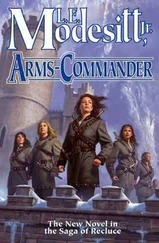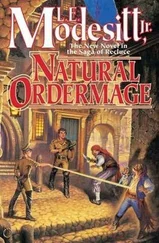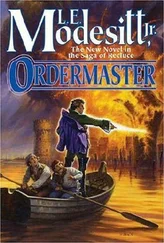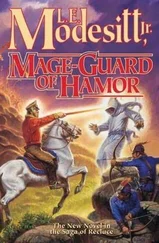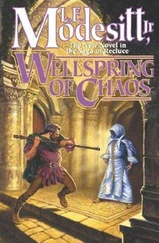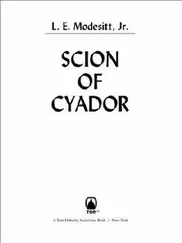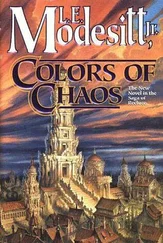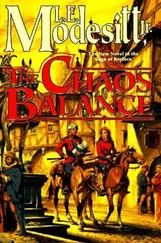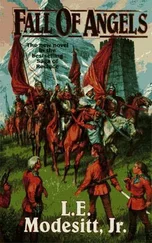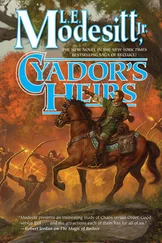L. Modesitt - Scholar
Здесь есть возможность читать онлайн «L. Modesitt - Scholar» весь текст электронной книги совершенно бесплатно (целиком полную версию без сокращений). В некоторых случаях можно слушать аудио, скачать через торрент в формате fb2 и присутствует краткое содержание. Жанр: Фэнтези, на английском языке. Описание произведения, (предисловие) а так же отзывы посетителей доступны на портале библиотеки ЛибКат.
- Название:Scholar
- Автор:
- Жанр:
- Год:неизвестен
- ISBN:нет данных
- Рейтинг книги:3 / 5. Голосов: 1
-
Избранное:Добавить в избранное
- Отзывы:
-
Ваша оценка:
- 60
- 1
- 2
- 3
- 4
- 5
Scholar: краткое содержание, описание и аннотация
Предлагаем к чтению аннотацию, описание, краткое содержание или предисловие (зависит от того, что написал сам автор книги «Scholar»). Если вы не нашли необходимую информацию о книге — напишите в комментариях, мы постараемся отыскать её.
Scholar — читать онлайн бесплатно полную книгу (весь текст) целиком
Ниже представлен текст книги, разбитый по страницам. Система сохранения места последней прочитанной страницы, позволяет с удобством читать онлайн бесплатно книгу «Scholar», без необходимости каждый раз заново искать на чём Вы остановились. Поставьте закладку, и сможете в любой момент перейти на страницу, на которой закончили чтение.
Интервал:
Закладка:
“No. When we returned from the hills after the war, almost all the history references were gone. I’ve borrowed and copied what I could find…”
“Didn’t anyone stay here during the war-to look after things?”
“Scholar Chardyn and a few others did. From what he said, I think the partisans may have taken over the Ecoliae for a time.”
“The partisans?”
“Oh … that was the name they gave themselves. They were the ones who kept fighting after Lord Chayar’s soldiers captured and executed Khanar Rhecyrd. The fighting in parts of Tilbora lasted over a year, closer to two.”
“It must have seemed the right thing for Scholar Chardyn to do, then, after his service to Khanar Rhecyrd.”
“I would judge so, but he never speaks about that time. None of us do. Those were the black years.”
“I imagine times were very difficult for most people.”
“The High Holders didn’t fare that badly. They have their own guards and armsmen, and the governor didn’t want to fight them, not after they attacked High Holder Jaraul, and lost almost five hundred soldiers to his two hundred.”
“They killed Jaraul?”
“They did, but, later, the governor pardoned him and granted half the lands back to his widow and surviving son. That was part of the agreement between the High Holders and Lord Chayar … well, the agreement signed on his behalf by the governor. That stopped the fighting between the High Holders and the governor. After that … the partisans had to give up. Mostly, anyway, except for occasional attacks on careless soldiers.”
“The governor caught most of them?”
“Oh, no. They just slipped away, back to whatever they’d been doing. Well … as they could. It didn’t make sense to fight much when they’d been betrayed by the High Holders.”
“For a time, the High Holders gave them support, until they-the High Holders-reached an agreement with the governor?”
“I don’t know. It seemed that the High Holders used the partisans as a tool to help force the governor to come to an agreement. Then they forgot how many partisans died.”
Quaeryt let himself wince. “That seems…”
“The way the High Holders always have been, in any land. Are they any different in Solis?”
“They’re … less direct, I’d say, but probably no different.”
Foraugh offered a sad smile. “You see?”
“None of the students come from their families?”
“They seldom leave their estates, and they have tutors, mainly from Bovaria. The wealthiest of our students would be paupers compared to the poorest children of the High Holders.”
That was no surprise to Quaeryt, but the answer he already knew wasn’t why he’d asked the question. “Then, the older timbering families, like those of Master Scholar Phaeryn, they’re not High Holders?”
“No. They’re highlanders and backlanders. They have lands, but not hoards of golds. Not most of them anyway. They also own the timber road to Midcote.”
“So most of the timber from Tilbor comes from Midcote?”
“It always has.”
Despite talking to Foraugh for another glass, Quaeryt learned little more. Nor did an additional glass in the library turn up anything new of note. When he finally left the library and stepped out onto the porch, the rain had stopped, and the clouds had retreated to a high overcast that appeared to be thinning. He had begun to consider what of those inquiries he had determined to be necessary he might best pursue with Sarastyn when Scholar Princeps Zarxes approached.
“Ah … Quaeryt, what do you think of our harvest rains?”
“For the sake of the holders and growers, I hope they had most of their harvesting done-or that what is left is mainly hay … or the like.”
“You sound like a grower. Do you have relations who are?”
“None that I know of, sir,” replied Quaeryt politely. “And you?”
“Not I. Phaeryn and I come from timbering families. I grew up with an ax in my hands, while Phaeryn was raised riding through those lands and marking trees.” Zarxes smiled broadly. “I have not seen much of you, except in the dining hall, although I hear you have made many inquiries of Sarastyn. Will you be with us much longer?”
“I anticipate at least until the end of the week, if not longer. I’m learning a great deal from Sarastyn, and even some from Scholar Chardyn.”
“Ah, yes. They each know history in a differing fashion. Well … I will look forward to reading whatever you write … if, of course, you can have a copy made for our poor library.”
“That decision, sir, I will have to defer to my patron.”
“You never did mention his name, I don’t believe.”
“I did not. That was his wish.”
“His command, perhaps?”
“Hardly. He does not express himself to me in that fashion, for which I am grateful.”
Make of that what you will.
“You should be. In that you are most fortunate.”
“I suspect it is just that he is perceptive. He is a good patron, and one I would not wish to lose. So I listen, and he sees that.”
“Many are not so reasonable, such as Lord Bhayar.”
“I have never been in any position to make that judgment,” replied Quaeryt with a light laugh. “From what everyone says, I would not wish to be.”
“Nor I.” Zarxes smiled pleasantly. “It would appear we will have a sunny and pleasant afternoon. Do enjoy it, as you can.”
“I have more to learn, but I will.” As I can, while always being aware of what lies behind me.
Zarxes did not glance back.
Shortly, the sun began to break through the overcast, and then the wind picked up. Directly after the sunshine strengthened, Sarastyn appeared on the south porch, and Quaeryt immediately approached the older man.
“More questions, Scholar Quaeryt?”
“Of course. Once I have thought over what I’ve learned from you, then I discover I have more questions.”
“That is always the way for a scholar.” Sarastyn looked out to the south. “The Ice Cleft will be open before all that long. But before that, I will endeavor to provide suitable responses.”
“It will be open … after all the rain?”
“Especially after all the rain. Here in Tilbor the soil is thin and drains well, too well the growers say, and with this wind, even the muddiest of byways will be passable by tomorrow. The Ice Cleft is on the main road, and I’m careful where I put my feet.” Sarastyn raised his thin eyebrows. “Your question, Scholar Quaeryt?”
“Who were the partisans?”
“You might as well ask the name of the wind-or the Nameless,” replied Sarastyn gruffly. “Any Tilboran-except a High Holder-could be a partisan at some time or another.” The old scholar snorted. “There have been partisans in Tilbor since the first Khanar. Anyone who acts on a grievance against a ruler or a High Holder declares himself a partisan.”
“Has anyone written about partisans who changed things-or have any been that successful?”
“Most partisans are more successful in stopping change than making it. To stop change, all you have to do is kill people who can effect change. To make a change in the way a land does things, you have to convince people, and few want to change.”
“So the best way to make a change is to convince people you’re restoring the old ways that they loved?” Quaeryt’s voice was only slightly sardonic.
“If you were a ruler or a governor, Scholar Quaeryt, you might possess the potential to be dangerous. As a scholar, you’re merely eccentric, and young for being so. Eccentricity is tolerated in the old, because we are believed unable to accomplish much. In the young, eccentricity is viewed as dangerous or a symptom of mental defect, neither of which is desirable.”
Читать дальшеИнтервал:
Закладка:
Похожие книги на «Scholar»
Представляем Вашему вниманию похожие книги на «Scholar» списком для выбора. Мы отобрали схожую по названию и смыслу литературу в надежде предоставить читателям больше вариантов отыскать новые, интересные, ещё непрочитанные произведения.
Обсуждение, отзывы о книге «Scholar» и просто собственные мнения читателей. Оставьте ваши комментарии, напишите, что Вы думаете о произведении, его смысле или главных героях. Укажите что конкретно понравилось, а что нет, и почему Вы так считаете.

